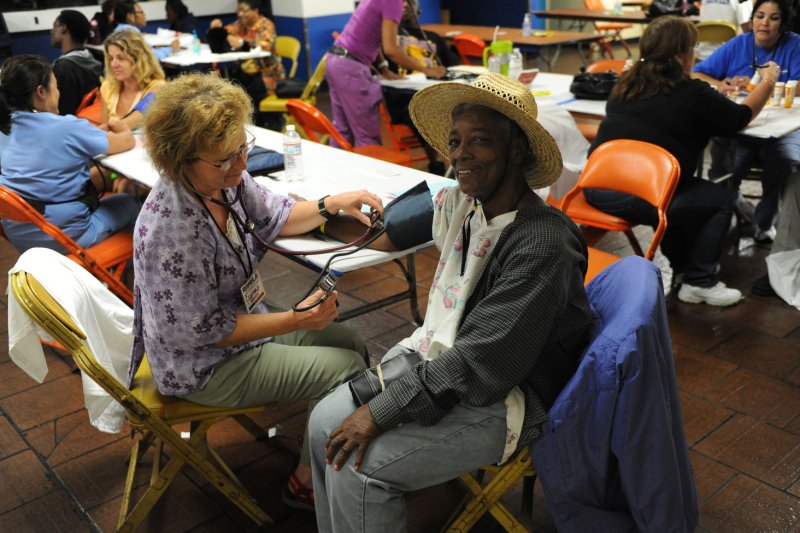Too much salt has long been linked to high blood pressure. UPI/Jim Ruymen. |
License Photo
WASHINGTON, Aug. 14 (UPI) -- Federal health officials recommend just 1,500 to 2,300 milligrams of salt per day. The American Heart Association is more puritanical. Its experts say any more than 1,500 milligrams in a given day is too much. But new research suggests eaters should shoot for between 3,000 and 6,000 mg of salt each day.
The new study -- published this week in the New England Journal of Medicine -- suggests the U.S.'s daily consumption of about 3,400 milligrams is not only perfectly fine but may be healthier than abstaining.
The international survey looked at health outcomes and salt intake information from some 100,000 people in 18 different countries. Though researchers found increased salt intake drives up blood pressure in older adults already dealing with high blood pressure, survey results suggested those who consumed between 3,000 and 6,000 mg of salt per day had fewer cardiovascular problems than those who ate less than 3,000 mg or more than 6,000 mg. The study also found regularly eating potassium mitigated blood pressure increases brought on my high salt intake.
In other words: healthy adults eating plenty of potassium don't need to worry so much about salt.
Dr. Suzanne Oparil, a cardiologist at the University of Alabama, Birmingham, who wrote an editorial accompanying the survey's publication, says she and her colleagues aren't advising eaters to pile on the salt, only that they take a more birds eye view of things.
"My personal bias is that there are so many more important things we could do," Oparil told NBC News. "A diet that reduces sugary drinks and approaches the Mediterranean diet will give you more benefit rather than regulating the salt aspect of the diet."
In the same journal, another study offered a bit of a retort, blaming a staggering 1.65 million deaths each year on cardiovascular disease attributable to excessive sodium consumption.
Dr. Elliott Antman, president of the American Heart Association, pledged his support of lowering salt intake and questioned the methods of the study that undermined his organization's recommendations. "We hold fast to the recommendations that there is a need to reduce sodium intake in the diet," Antman told the Wall Street Journal.
Oparil and her colleagues admit that their study was limited by certain factors, and that more research is needed, but says the amount of data they collected was huge and convincing. She told NBC the advice eaters need to focus on is: "Try to eat natural foods. Cook your own food, as opposed to eating fast food and snack foods."
"Japan, one of the highest salt consumers, has one of the longest lifespans," Oparil added.















